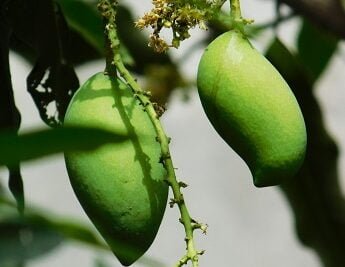Introduction:
The agricultural business has been around since the beginning of human civilization. It is a vital industry that provides food and fiber to people across the world. In recent years, the agriculture business has become increasingly sophisticated, with new technology and practices that have transformed the way we produce, process, and distribute food.
In this article, we will explore how innovation is changing the face of the agriculture business, the challenges faced by farmers and agribusinesses, and the opportunities that arise from these changes. We will also discuss the role of sustainability and its impact on the agriculture business.
Part 1: Innovation in Agriculture Business
1.1 Precision Agriculture
Precision agriculture is a technology-driven approach that uses data analytics, sensors, and mapping tools to optimize crop yields and reduce waste. Farmers can use precision agriculture to monitor soil conditions, temperature, and moisture levels to determine the most effective time for planting, irrigation, and harvesting. This technology has revolutionized farming by improving crop yields, reducing costs, and minimizing environmental impact.
1.2 Biotechnology
Biotechnology has played a significant role in the agriculture business by improving crop varieties and developing new crop protection products. Genetically modified crops have helped farmers to control pests, improve crop yields, and reduce the use of pesticides. Biotechnology is also used in the development of vaccines, biofuels, and other products that are essential to the agriculture business.
1.3 Robotics and Automation
Robotics and automation are transforming the agriculture business by improving efficiency and reducing labor costs. Robots can perform tasks such as planting, harvesting, and sorting crops, which reduces the need for human labor. Automation is also used in the processing and packaging of food, reducing the risk of contamination and improving the quality of the final product.
Part 2: Challenges Faced by Agriculture Business
2.1 Climate Change
Climate change has had a significant impact on the agriculture business, with rising temperatures, changing weather patterns, and extreme weather events affecting crop yields and livestock production. Farmers and agribusinesses are facing the challenge of adapting to these changes, by using new technologies and practices to improve resilience and reduce environmental impact.
2.2 Food Security
Food security is a major challenge for the agriculture business, with a growing global population and increasing demand for food. Farmers and agribusinesses are facing the challenge of producing more food with limited resources while ensuring that food is safe, healthy, and affordable.
2.3 Global Trade
Global trade is a significant challenge for agriculture businesses, with changes in trade policies and tariffs affecting the price and availability of food products. Farmers and agribusinesses must adapt to these changes by finding new markets and reducing their dependence on specific regions or countries.
Part 3: Opportunities in Agriculture Business
3.1 Sustainable Agriculture
Sustainable agriculture is an opportunity for farmers and agribusinesses to improve the efficiency and profitability of their operations while reducing environmental impact. Sustainable agriculture practices include crop rotation, conservation tillage, and the use of cover crops to improve soil health, reduce erosion, and increase water retention.
3.2 Organic Agriculture
Organic agriculture is an opportunity for farmers and agribusinesses to tap into a growing market of consumers who are willing to pay a premium for organic products. Organic agriculture practices include the use of natural fertilizers, crop rotation, and the avoidance of synthetic pesticides and fertilizers.
3.3 AgTech Startups
AgTech startups are an opportunity for entrepreneurs to develop new technologies and solutions that can improve the agriculture business. AgTech startups are developing solutions in areas such as precision agriculture, biotechnology, and robotics, with the potential to transform the industry.
Conclusion:
The agriculture business is undergoing significant changes, with new technologies and practices transforming the way we produce, process, and distribute food. Innovation in precision agriculture, biotechnology, and robotics is improving efficiency and reducing costs for farmers and agribusinesses. However, the agriculture business also faces challenges such as climate change, food security, and global trade. The industry must adapt to these challenges by finding new markets, improving resilience, and adopting sustainable practices.
Sustainable agriculture and organic agriculture are opportunities for farmers and agribusinesses to tap into growing markets of environmentally-conscious consumers. AgTech startups are also an opportunity for entrepreneurs to develop new technologies and solutions that can improve the industry.
In conclusion, the agriculture business is an important industry that provides essential goods and services to people across the world. The industry is transforming rapidly, and the future of the agriculture business will be shaped by innovation, challenges, and opportunities. It is essential for the industry to continue to adapt to changing conditions and to focus on sustainability and innovation to meet the growing demand for food while minimizing environmental impact.













